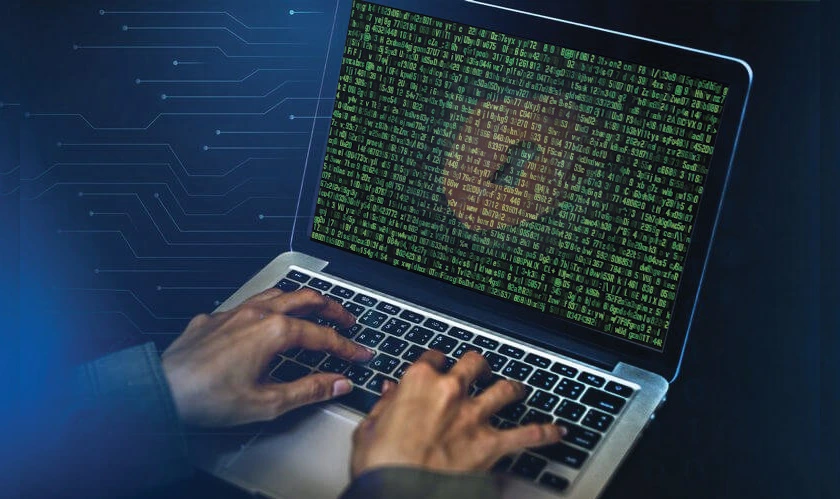Home Technology Cyber security How to check if your PC has be...
Cyber Security

CIO Bulletin
08 September, 2022
Cybercriminals are a menace to modern society as they keep finding new ways to threaten users and organizations. They either exploit vulnerabilities in the IT network, infrastructure or mistakes made by unsuspecting internet users.
Cybercriminals are resourceful as they have access to a massive database of stolen data and can even trade the stolen data on the dark web. Millions of cybercrime services are spread across the web, and hackers use them to steal or extort money from victims.
As internet users, we don’t have much control over the IT network or infrastructure and can't even plug the existing loopholes. However, we can prevent clicking on suspicious links (phishing links), not using MFA or multi-factor authentication, and bypassing critical software updates. Thus, before you lose valuable data or become a victim of cybercrime, here's a list of signs to understand that your PC has been hacked.
Nine signs your PC is hacked
Hackers usually carry out covert operations, and by the time their victims identify anything unusual, they will have monetized the users' online accounts and network access. Recognizing these signs at an early stage can save you from losing hundreds of dollars:
Ransomware messages
It is the most obvious sign that your PC has been hacked. The moment you switch on your PC, the ransom message pops up, confirming that you've become a victim of a ransomware attack. You're asked to pay in digital currency for a decryption key, which might never arrive. For instance, victims of BlackMatter ransomware paid the ransom but still had their data leaked online. Thus, never choose to pay cybercriminals.
The webcam turns on automatically
It’s creepy when you find out the webcam turns on automatically. It usually happens when hackers install spyware to switch on the mic and webcam in your PC. Now, the hackers use this ploy to record your videos, which include interactions among family members, which they can later use for blackmailing. You must check the webcam frequently to find out whether it automatically turns on or not.
You unknowingly send messages
If your friends, colleagues, or family members notify you about receiving spam messages from your accounts, chances are very high that your PC has been hacked. It is one of the oldest hacking phishing strategies wherein a victim's account is hijacked, and then it's used for sending spam or phishing messages to their friends.
PC screen flooded with pop-up ads
Hackers carry out these attacks by installing Adware on the victim's PC. Thus, if you're witnessing flooding of ads every time you open your PC, it's certain that your PC has some code or unwanted software installed.
Painfully slow PC operations
Hackers often infect the victim's PC with worms, cryptocurrency miners, and Trojans, drastically slowing down the PC. Cryptojacked PCs use all the resources of a computer while mining digital currency. If your PC has been running slow, you need to find out whether it’s a result of poor PC hygiene or it’s been turned into a currency minting machine by hackers!
The appearance of strange toolbars on the Browser
Your PC might be hacked if you see additional or unknown toolbars on the browser. If you fail to recognize or remember downloading any such tool, it implies that your PC is hacked. The only way to get rid of such malware is to restore the PC to factory settings. However, deleting the toolbar or app can also suffice if you don't want to lose your current settings.
The random appearance of icons
If a PC is compromised, you might see new icons appearing on your desktop. The malware installed on your PC creates icons on the desktop, but you can easily spot them if all your icons are correctly arranged. Tidying up your PC every month is an excellent way to detect the appearance of new icons and prevent unnecessary programs from residing on your PC.
Non-functional passwords
On gaining access to hacked PCs, cybercriminals often hijack the victim's online accounts, like their emails, social media accounts, etc., and change the passwords. It is easy to lock out the victim, and recovering from such an attack can be quite complex.
Data breach notice
Various online services (often free) provide data breach alerts to users. If you receive any such notice, don't ignore it. Get in touch with the online service providers and determine how to prevent further damage. However, you first need to change the passwords of all your online accounts, including your social media accounts.
What can you do?
If you think your PC has been compromised, it’s time to take immediate action. Running an anti-malware application can help you remove malicious code. Here’re a few more things to do:







